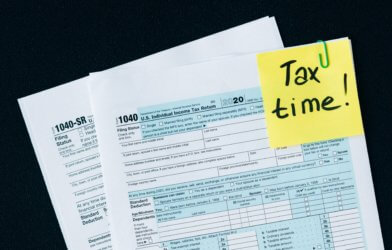NEW YORK — Time is money — and Americans are putting a price tag on everything they do outside of work. A new poll finds the average person values the rest of their day at $134.
The survey of 2,000 adults reveals that, aside from their job, Americans think that they do $134 worth of work after factoring in chores such as cleaning (64%), cooking (55%), and driving (41%). Though the average respondent only spends about $35 on any given day, 39 percent wish they had some form of additional income to help make up the difference. In fact, if an additional $270 were readily available each day, Americans say they would feel more financially free.
Conducted by OnePoll on behalf of Experian, the survey looked at all of the ways Americans define “financial freedom” and found that for 54 percent, it simply means having no debt. For others, it means having a substantial emergency fund (33%), being able to pay bills for six months without worry (33%), and spending less time worrying about their finances (25%).
Results also revealed that only one in three Americans currently feel financially free.
Of the 48 percent who feel financially restricted, not needing to stick to a budget each month (42%), not having to monitor their bank account before or after every purchase (38%), and having an “excellent” credit score (29%) would make them feel more liberated.
Currently, the average American makes a salary of just over $65,000 — only about two-thirds of the average salary they’d need to make in order to feel financially free ($102,950.10).
This may be why only 21 percent of financially restricted respondents believe that they’ll ever be free. Those respondents estimate that freedom will come only about 10 years before retirement, or around age 54.

“While financial freedom can be defined differently for different people, the one common denominator is people want to live more financially empowered lives,” says Christina Roman, Experian’s consumer education and advocacy manager, in a statement. “Financial literacy is key to achieving this. Accessing tools and resources that you can trust is the first step to increasing your financial knowledge and navigating your individual situation.”
The survey also looked at the debt Americans have and found that only 25 percent don’t have any. Nearly half have credit card debt (47%), whiles others are dealing with debt from a mortgage or home loan (23%), auto loans (22%), and health or medical bills (21%).
Those respondents estimate it’ll take an average of six years to fully pay them off, though seven percent don’t believe they’ll ever do so. Debt worries plague Americans so much that the average person thinks about them 120 times every month, or about four times every day.
Three in five respondents have been more cautious about their spending habits in the last five years. This may be because many are hoping to make large purchases such as a car or other vehicle (48%), a vacation (36%), and home renovations (27%).
Realistically, the average respondent believes that they’ll be able to make those spends within the next four years.
In 2024, Americans are taking steps towards financial freedom, including working to pay off their debts (58%), spending less on non-essentials (50%), and putting money into their savings account every month (42%).
“Financial freedom is a marathon, not a sprint and there’s not a one-size-fits-all approach,” Roman says. “Whether you’re managing existing debt, building credit or saving for a house, it’s important to research and identify the steps that will put you on a path to becoming more financially independent and achieving your goals. There are resources for consumers looking to improve their financial health, regardless of what stage of the financial journey they’re on.”
Survey methodology:
This random double-opt-in survey of 2,000 general population Americans was commissioned by Experian between Jan. 12 and Jan. 18, 2024. It was conducted by market research company OnePoll, whose team members are members of the Market Research Society and have corporate membership to the American Association for Public Opinion Research (AAPOR) and the European Society for Opinion and Marketing Research (ESOMAR).



